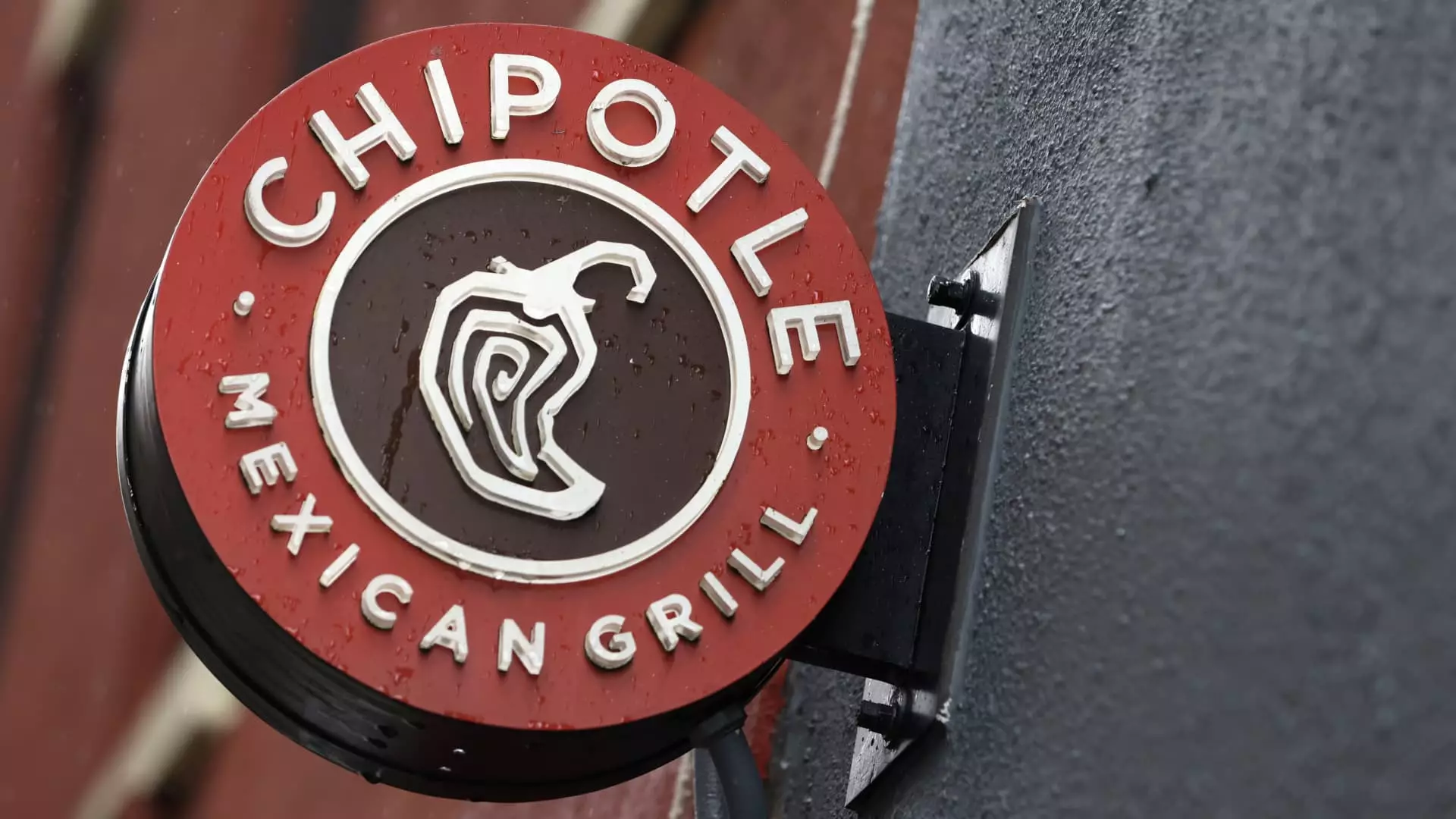As the earnings season unfolds, stock market trends are increasingly influenced by reports from prominent tech companies and some well-known retail names. While quarterly earnings can create excitement or panic based on perceived performance, they should not serve as the sole basis for long-term investment decisions. The art of investing lies in understanding how a company can address short-term challenges while establishing solid long-term value through successful operational strategies. Let’s delve into three stocks that have caught the attention of seasoned analysts from Wall Street, exploring what makes them attractive investment opportunities in today’s volatile market.
First on our exploration is Fiserv (FI), a financial services technology firm that has recently made headlines with its robust performance metrics for Q3. Fiserv reported an impressive 17% increase in adjusted earnings per share compared to the same quarter last year, demonstrating its capability to harness organic revenue growth of 15%. The optimism surrounding Fiserv is underscored by analyst Ivan Feinseth from Tigress Financial, who recently increased his price target for the stock from $190 to $244, reiterating a bullish buy rating.
Feinseth emphasizes Fiserv’s strategic position as the world transitions toward digital payments, citing the company’s innovative financial solutions and its flourishing customer relationships as key growth drivers. The analyst points out that the scalability of Fiserv’s distribution platform, together with ongoing innovations like the expansion of its Clover portfolio and enhancements in real-time payment solutions, positions the company for continued market share growth. Such optimism reflects not only the company’s solid Q3 results but also its long-term vision. With Feinseth ranking favorably among over 9,100 analysts, his predictions carry considerable weight and merit further exploration for long-term investors looking for growth in the evolving financial services landscape.
Next, we examine Boot Barn (BOOT), a key player in the western and work apparel sector that recently faced market turbulence despite delivering a better-than-expected performance during its second fiscal quarter. The company’s upward revision of its full-year guidance should normally spark investor enthusiasm; however, BOOT’s stock took a hit due to the announcement of CEO Jim Conroy’s impending departure, who is set to take the reins at Ross Stores.
Baird analyst Jonathan Komp responded to the drop by upgrading Boot Barn’s stock from hold to buy, maintaining a buoyant price target of $167. Komp’s assessment hinges on the belief that the stock’s retreat offers a compelling entry point for investors. He remains optimistic about Boot Barn’s growth trajectory, particularly with plans for significant store expansion—projecting an increase of over 15% in its locations for the third consecutive year. Komp highlights the robust momentum in comparable store sales across various demographics, demonstrating the company’s underlying strength, suggesting that a well-functioning management team remains poised to uphold Boot Barn’s market growth aspirations in the face of leadership changes.
Chipotle’s Challenging Journey: Resilience Amid Sale Struggles
Finally, we turn our attention to Chipotle Mexican Grill (CMG), a beloved restaurant chain that recently published mixed earnings results. While the company surpassed adjusted earnings expectations, it fell short of sales projections, despite achieving a 3.3% increase in customer traffic during what is becoming an increasingly challenging economic environment.
Analyst Chris O’Cull of Stifel maintained a buy rating on CMG, with a price target set at $70. His analysis indicates that Chipotle’s comparable restaurant sales growth aligns closely with market expectations—marking an important indicator of the brand’s resilience. Looking towards Q4, O’Cull suggests that Chipotle’s new smoked brisket offering could spur additional customer engagement, ultimately enhancing the overall top line. Notably, the focus on improving operational throughput, which determines how efficiently orders are processed, is pivotal to Chipotle’s attempts at regaining lost momentum. By strategically upgrading equipment and implementing new operational protocols, Chipotle aims to increase its service efficiency, which is critical for maintaining customer loyalty.
While earnings reports can create immediate reactions in stock prices, diligent investors must consider broader operational outlooks and leadership capabilities when making decisions. Fiserv, Boot Barn, and Chipotle each present unique growth stories and challenges that may appeal to various investor profiles. By analyzing not just the earnings results, but the strategic initiatives and market positions of these companies, investors can better navigate today’s complex financial landscape and make more informed decisions on long-term investments.

